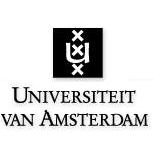Academic Philosophy Events in the Netherlands
All events in academic philosophy

- This event has passed.
PhD Defense “Reminders of Duty: A Kantian Theory of Blame” (Matthé Scholten)
9 September 2016 @ 12:00 - 13:00

Matthé Scholten will defend his thesis ‘Reminders of Duty: A Kantian Theory of Blame’. His promotors are Josef Früchtl en Marcus Willaschek.
Summary: This dissertation develops a Kantian quality of will account of moral blameworthiness. Part I starts with a discussion of the Reinhold/Sidgwick Objection. According to this objection, anyone who accepts the Kantian conception of autonomy is forced to draw the absurd conclusion that no one is ever morally blameworthy for anything. I show that this objection depends on the implicit premise that freedom is a necessary condition for moral blameworthiness. While rejecting the standard Kantian replies to the objection, I proceed to investigate which sort of freedom is necessary for blameworthiness. Part II focuses on the problem of free will. On what I call the Traditional View, agents are morally blameworthy for an action only if that action is transcendentally free. After showing that Kantian attempts to reconcile this sort of freedom with causal determinism rely on implausible and ad hoc metaphysical assumptions, I investigate which principles might support the Traditional View. The natural candidates are the Principle of Alternate Possibilities (PAP) and the principle Ought Implies Can (OIC). While demonstrating that Kant rejects PAP, I argue that Kant’s version of OIC does not support the Traditional View. The view can thus be rejected. Part III then develops a Kantian quality of will account of excuses and exemptions. This account explains why physical constraint, unintentional bodily movement, ignorance and coercion often provide an excuse and why schizophrenic patients suffering from psychotic episodes are often exempted from moral responsibility. If the proposed account is correct, the Reinhold/Sidgwick Objection does not take hold.
About the OZSW event calendar
The OZSW event calendar lists academic philosophy events organized by/at Dutch universities, and is offered by the OZSW as a service to the research community. Please check the event in question – through their website or organizer – to find out if you could participate and whether registration is required. Obviously we carry no responsibility for non-OZSW events.